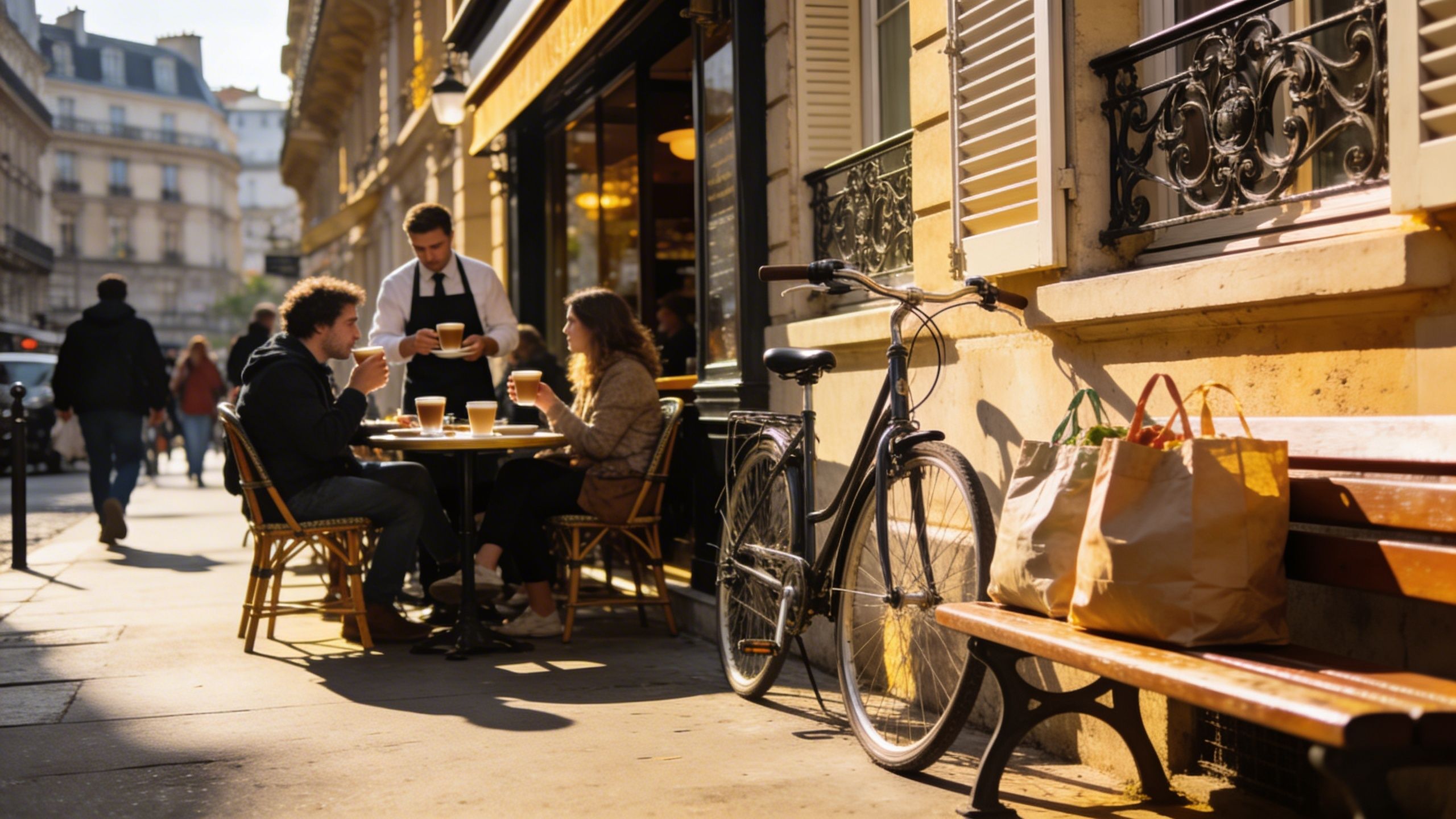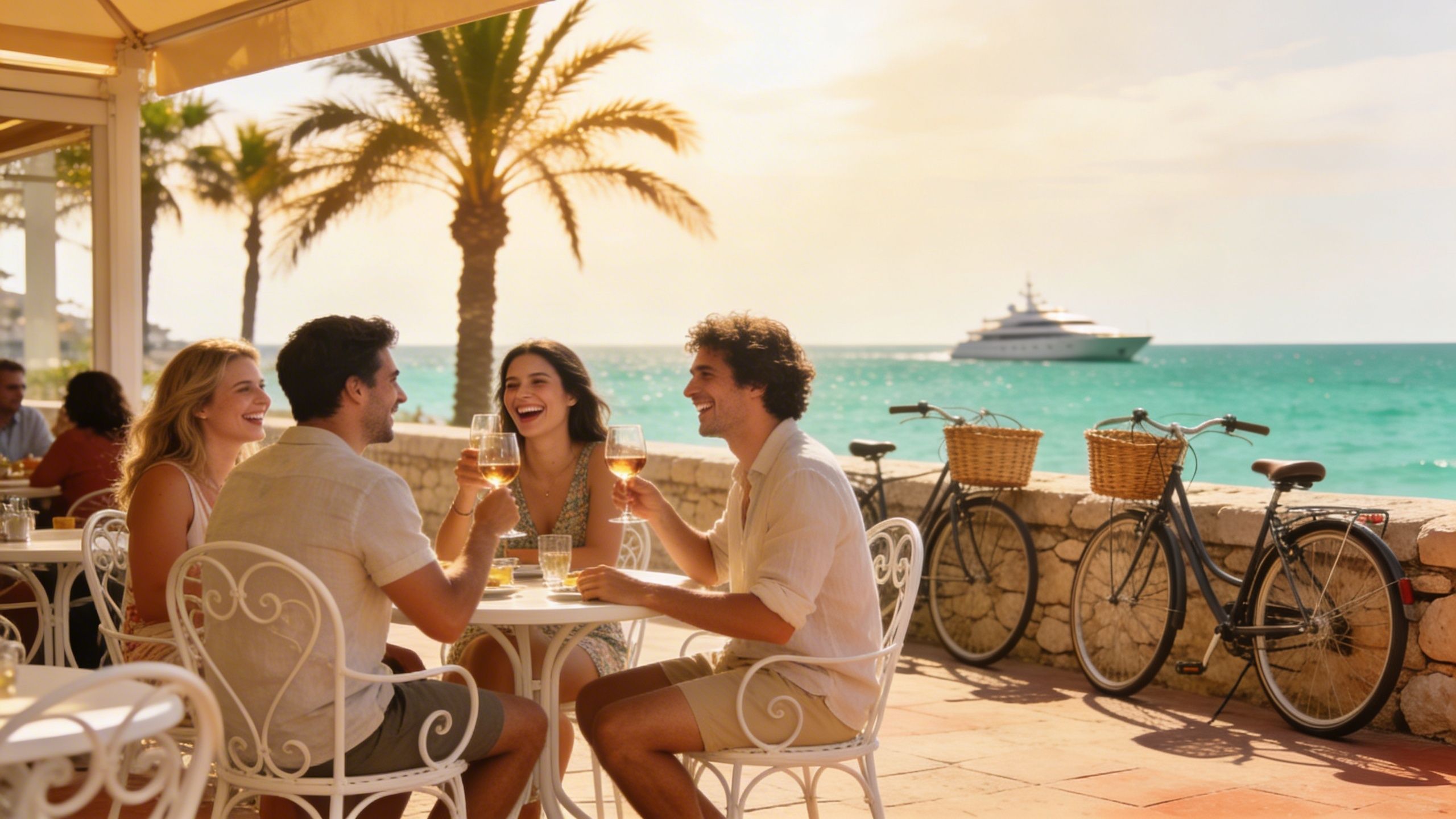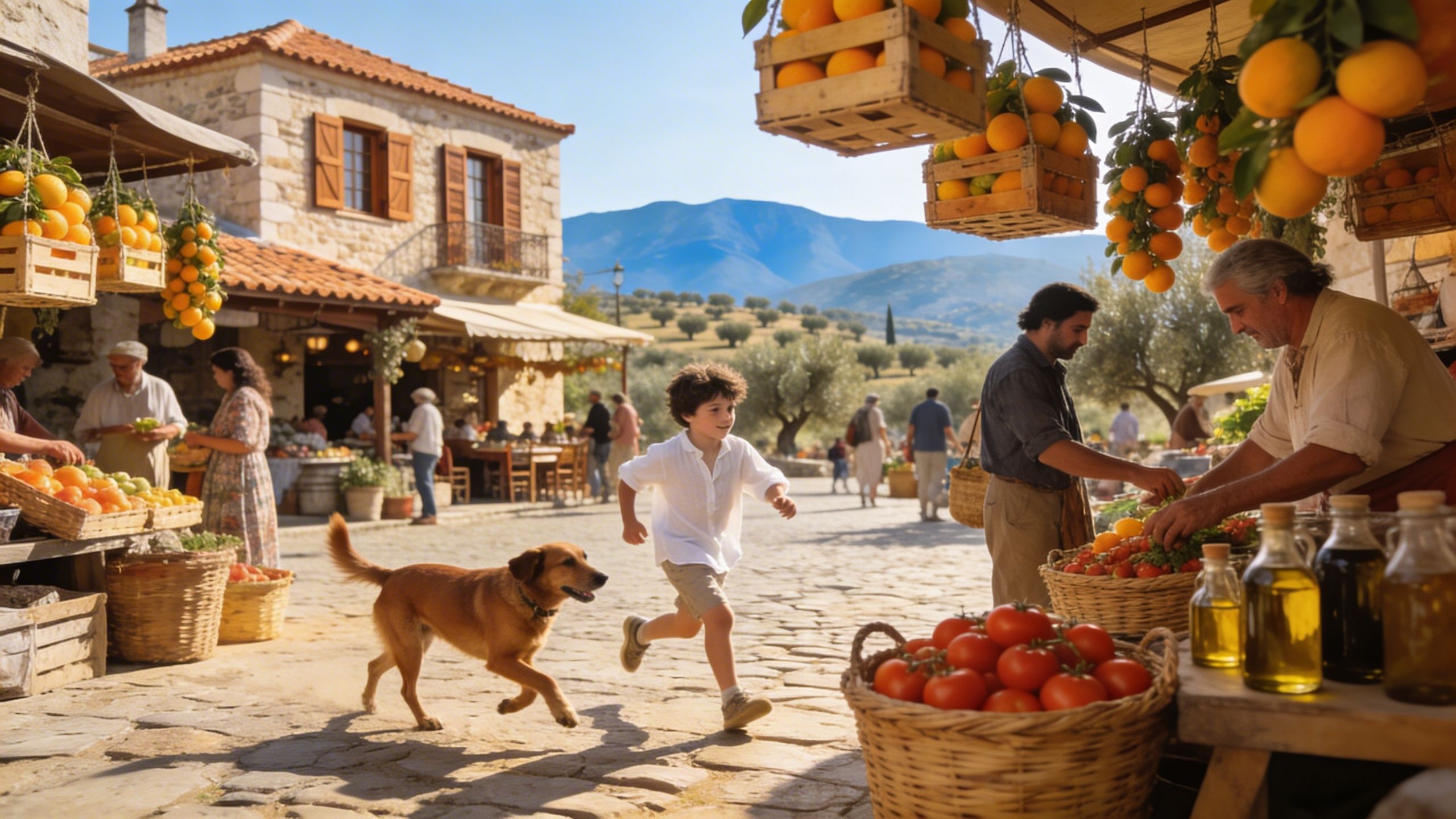France: Taxes, Transparency and Red Flags Before You Buy
Practical, region-aware guide to living in France and buying with clarity—market data, taxes, notary costs and red flags, with cited official sources.
Imagine sipping espresso at an early-morning market stall in Lyon, then signing a purchase mandate for a light-filled apartment before lunch. France offers rhythms that vary by region: the measured mornings of provincial towns, the quickened pulse of Paris, and the long summers on the Côte d'Azur. For international buyers, those rhythms matter because lifestyle and legal routines meet at the point of property ownership. This guide pairs sensory descriptions with concrete rules and verified data so you can fall for a place while making a cautious, informed purchase.
Living the France lifestyle
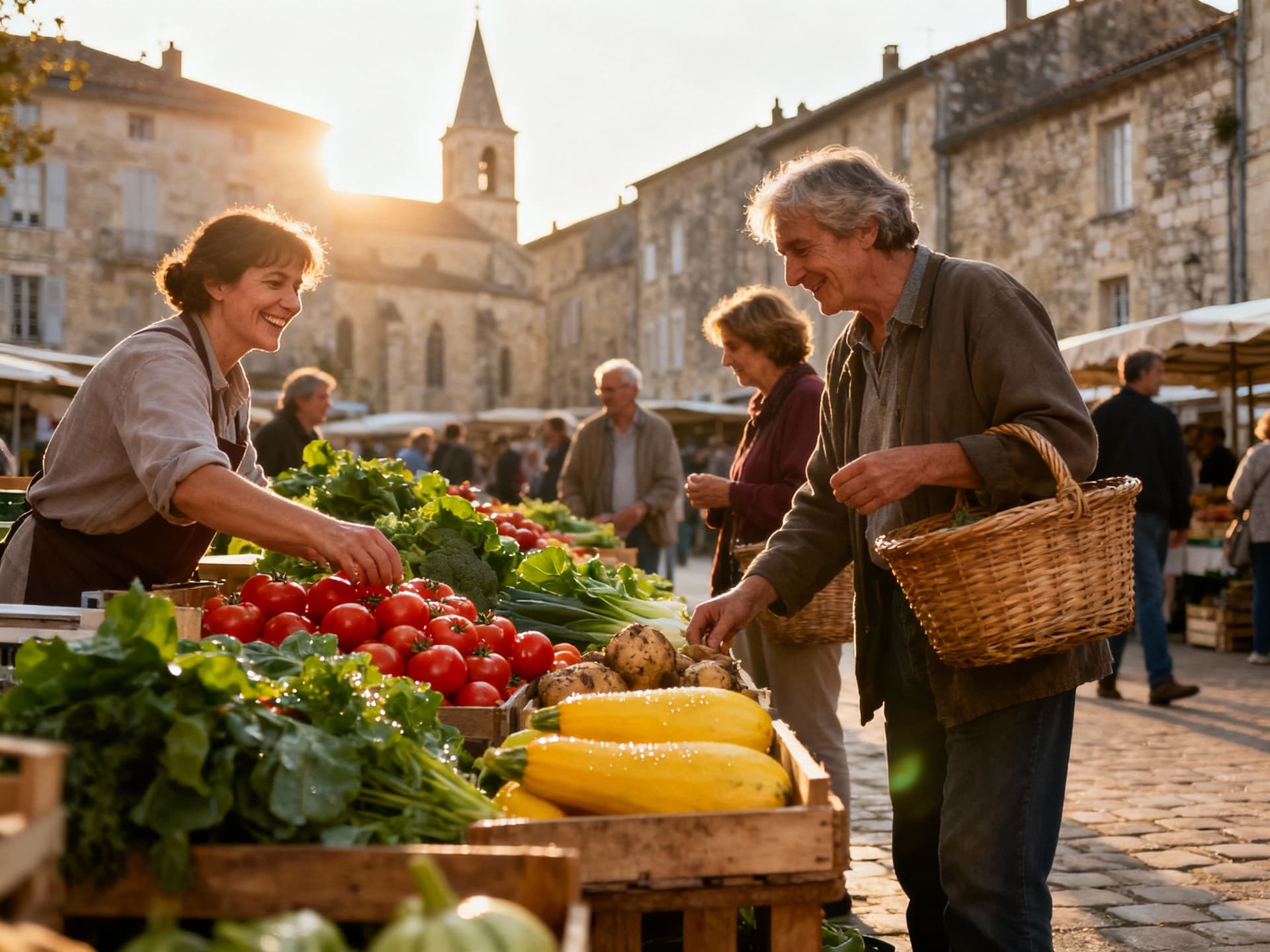
French daily life is local and layered. Mornings are for markets and bakeries; afternoons for neighborhood errands; evenings for long meals and conversation. Public life centers on squares, boulangeries and small restaurants; coastal towns trade the café for the beach in summer. Understanding these patterns will help you choose a property where the daily routine matches your expectations rather than imposing change.
Signature neighbourhoods and what they feel like
Paris arrondissements differ block by block: the 7th offers stately boulevards and museums; the 11th trades formal for lively cafés and bars. In Provence, Aix and Avignon pair markets and Provençal light with quieter residential streets. On the Riviera, Nice and Antibes shift the day outdoors: promenades, beaches and a seasonal hospitality industry. Choosing a neighbourhood is a lifestyle decision as well as a financial one; check noise, tourism seasonality and local services before committing.
Food, markets and the social calendar
French food life is civic: morning markets, weekly marchés, and neighbourhood patisseries structure the week. Wine bars and bistros anchor social life, while seasonal fêtes and local festivals punctuate the year. If you value outdoor dining and lively public space, coastal and southern towns will reward you; if you prefer quieter cultural seasons, look to mid-sized provincial centres. Consider proximity to weekly markets and food shops when assessing walkability and daily costs.
- Lifestyle highlights: Marchés de la ville, promenades on the Côte d'Azur, evening terraces in Lyon, village fêtes in Provence, Musée nights and Sunday boulangeries.
Making the move: practical considerations
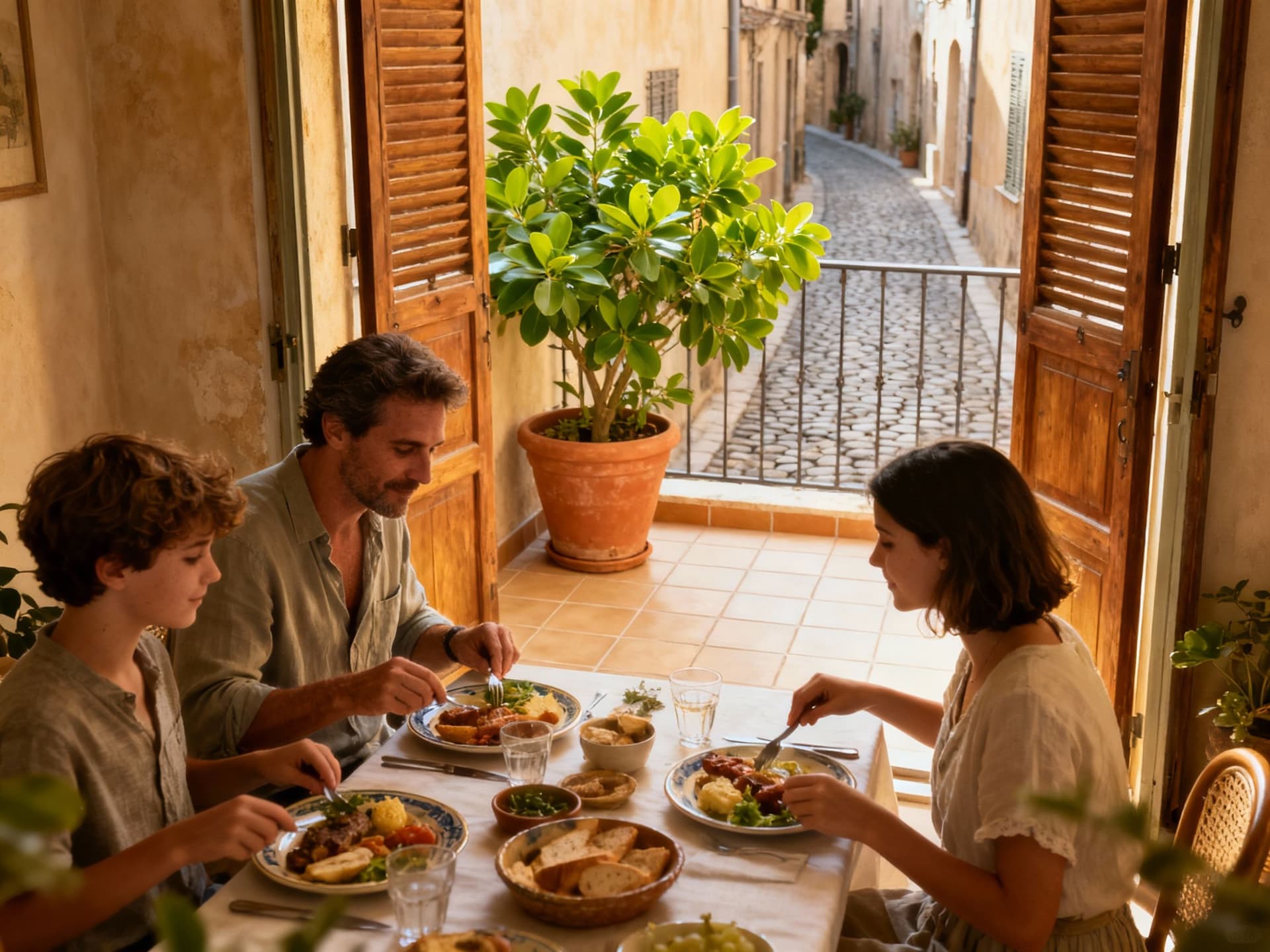
Lifestyle choices must be assessed against market reality. National statistics show a modest price rebound in early 2025 after a period of decline, but gains vary strongly by region and property type. Transaction costs, taxes and local rules materially change the net cost of ownership. Factor those elements into any offer — not as abstractions, but as line items that affect yield, cash flow and long-term value.
Property styles and how you will live in them
Stone townhouses behave differently from glass-box new builds. Older apartments in city centres often have lower energy efficiency and higher renovation overheads; rural houses may need structural surveys and consideration of septic systems. Notary and registration costs typically add several percent to purchase price — check the current rates for old versus new builds. Match property type to lifestyle to avoid costly retrofits that would alter your daily life.
Working with local experts who understand both lifestyle and law
An agent who knows the market will identify properties that truly fit your routine and flag local constraints — heritage rules, short-term rental limits, or seasonal tourist pressure. Use agencies for access and local context, but always pair them with independent experts: a notaire for legal checks, an architect or surveyor for structure, and a tax adviser for cross-border implications. Insist on clear mandates, written fee structures, and references before committing.
- Step-by-step practical checklist: 1. Order a local diagnostic and structural survey before making an offer. 2. Request recent condominium minutes and charges if buying an apartment. 3. Confirm local taxes and expected notary fees with a notaire. 4. Verify rental rules and permits if you plan short-term letting. 5. Consult a cross-border tax adviser about residency and capital gains exposure.
Insider knowledge: transparency, taxes and common red flags
Transparency in France is strong on paper but uneven in execution. Municipalities publish rules, and national agencies provide data, but local practices vary. Expect clear documentation from notaires and transparent transfer of title, yet be alert for missing condominium minutes, informal verbal agreements, or unrecorded works. Confirm tax treatment early: second-home taxation and non-resident capital-gains rules materially affect total costs.
Cultural nuances and what expats wish they'd known
Official procedures are formal and paper-based; patience and precise documentation matter. Learning a few legal terms in French will speed interactions with notaires and tax authorities. Social integration often follows sustained local presence: regular market visits, participation in fêtes, and connections with local business owners. Expect a slower pace in small towns and stricter regulations near historic centres.
Long-term considerations: resale, inheritance and seasonal risk
Plan for tax events and lifecycle changes. French inheritance law (forced heirship) and tax rules can affect long-term succession; consult specialists if you intend multigenerational ownership. Consider seasonality in coastal towns — high summer demand can benefit short-term income but increases management costs and wear. For resale, proximity to transport, school quality and municipal plans drive value more than transient trends.
- Common red flags to verify: • Missing building permits for visible extensions. • Large condominium arrears or unresolved litigation. • Unclear utility access (water, sewer, broadband). • Discrepancy between livable surface and official cadastral figures. • Seller pressure for a quick private sale without notaire oversight.
France offers a layered, textured life — markets at dawn, cafés in the evening, and a public culture that privileges place. For international buyers, the romance is real but should be matched with rigorous due diligence. Start with verified data, local experts and clear, written steps. If the lifestyle suits you, an informed purchase will deliver both daily joy and prudent investment.
British expat who relocated to Marbella in 2012. Specializes in rigorous due diligence and cross-border investment strategies for UK and international buyers.
